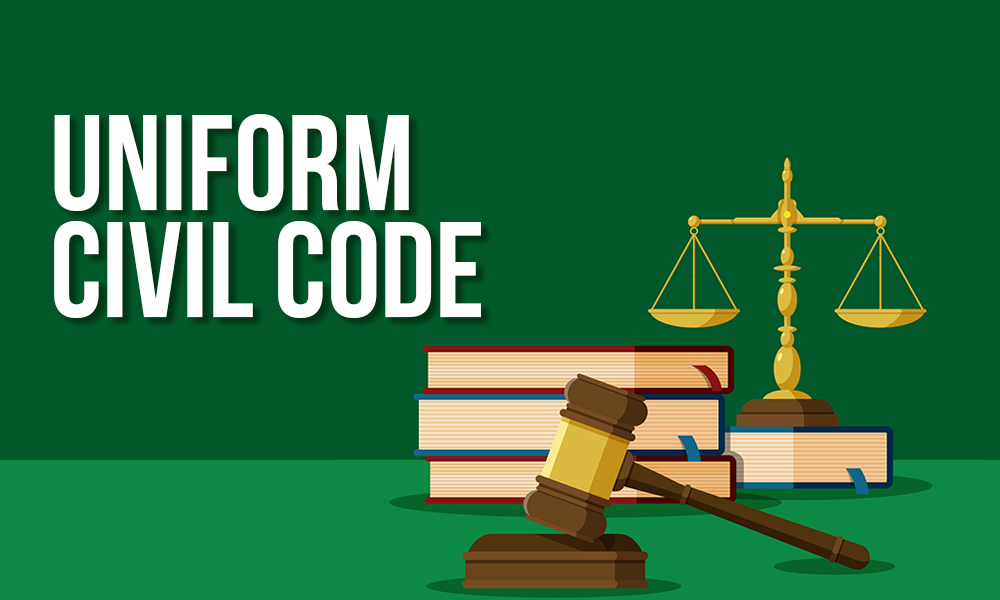Uniform Civil Code of India | Best Army GD Coaching in Lucknow

uniform civil code
Uniform Civil Code of India | Best Army GD Coaching in Lucknow
Best Army GD Coaching in Lucknow | No-1 Coaching for Army physical and written exam preparation in Lucknow
Mobile No.: +91-8881002943
Address: E1/5, near Power House, Sector B, Sector CS, Aliganj, Lucknow, Uttar Pradesh 226024
E-mail-ID: wdasoldiersacademy@gmail.com
Website:
https://www.warriorsndaacademy.com/best-army-gd-coaching-lucknow/
https://warriorsdefenceacademy.co.in
https://warriorsdefenceacademy.com
WDA Soldiers (Warriors Defence Academy Soldiers) a unit of Warriors Defence Academy in Kapoorthla Lucknow Uttar Pradesh is the Best Army GD Coaching Lucknow, Physical and Written Academy in India. Welcome to Army GD Coaching Lucknow India WDA Soldiers Lko, @20% Discount. Call 08881002943 Top Army Soldiers Coaching in India, Best Army GD Coaching in India, Best Army Coaching in India, Best Army Academy in India.
Uniform Civil Code of India | Best Army GD Coaching in Lucknow
Uniform Civil Code of India | Best Army GD Coaching in Lucknow – In India, all citizens no matter their identity everyone has a common criminal code but the personal laws are different for different communities in India. A Uniform civil code is a proposal that aims to replace personal laws based on scriptures and customs of each major religious community in India with a common set of rules governing every citizen. Personal laws include divorce, inheritance, adoption, and maintenance. These laws are different for different communities in India currently.
The beginnings of the Uniform Civil Code go way back to colonial times. In the second law commission of 1835, the East India Company felt the need to codify Indian law related to crimes, contracts, and evidence but refrained from interfering in the personal laws of the various communities in India as these laws were commanded on the respective religious scriptures. After the 1857 revolt when power changed hands to the British Crown in 1858 Queen Victoria promised absolute non-interference in religious laws considering the British were only interested in economic exploitation and not interested in personal and religious interference especially after the 1857 revolt.
Uniform Civil Code of India | Top Army GD Coaching in India
The contextual issues regarding the Uniform civil code are many. Firstly, there are legitimacy issues as the British were colonial power hence they had legitimacy constraints. But in an Independent India where sovereignty rests with the people, there is no issue of legitimacy considering we elect governments based on the principle of universal suffrage for seven decades, there should not be an issue to legislate uniform civil code. Secondly, it is not only the minorities but some sections in the majority Hindu community that are also opposing considering there are many sub-divisions in the community. Lastly, gender equality also plays a vital role considering many women in different communities have discriminatory laws and prevalent customs depriving them of inheritance, remarriage, and divorce.
BEFORE INDEPENDENCE DUE TO MANY PROGRESSIVE MOVEMENTS LAWS WERE PASSED WITH RESPECT TO HINDUS LIKE THE HINDU MARRIAGE ACT OF 1856, HINDU INHERITANCE ACT 1928 AND HINDU WOMEN’S RIGHT TO PROPERTY ACT OF 1937. THE GROWING TIDE OF LEGISLATION ON PERSONAL LAWS CREATED A LOT OF DEBATE AND CONTROVERSY.
Uniform Civil Code of India | Best Army GD Coaching in Lucknow
- Best Agniveer Coaching Lucknow | WDA Soldiers Lucknow
- Join Indian Navy – Best Agniveer Coaching in Lucknow
- Flag Code of India 2002 in Hindi भारतीय ध्वज संहिता 2002
- Top Army GD Coaching in India | Best Army GD Coaching in Lucknow
- Indian Army Syllabus 2023 GD, Havildar, Agniveer, Clerk, Tech

After Independence the Indian Government the B.N Rau Committee has given the task of codifying Hindu law which led to the Hindu Marriage Act 1955, Hindu succession act 1956, Hindu Minority and Guardianship Bill 1956, and Adoption and Maintenance Bill 1956. The reason only Hindu laws were codified was, it was considered a trial and if it succeeds other committees might come forward to change their own law was the answer given by G.R. Rajagopal. Despite this, there was strong criticism against only changing Hindu Laws and then was the thought of Uniform Civil Code was put forward as the above laws were considered communal and a uniform law will reflect the Secular ideals of the country and as a gesture of will, the government of India added the UCC in Article 44 as a non-justifiable Directive Principle. Later, efforts towards UCC was the Special Marriage Act 1954 was passed which allowed citizens of the different communities to get married outside religious boundaries.
The turning point on the issue of UCC was the Shah Bano case of 1985 where the court ruled in her favor and ordered to pay the husband to pay her maintenance. The key observations of the Supreme Court in the Shah Bano Case were that it is a matter of regret that Article 44 has remained a dead letter and we cannot expect a community to come forward for change in personal law and the state must help the cause of UCC and the state also has the Legitimate Right to do so to further the integration of a nation and a beginning has to be made for the constitution to have any meaning and a common civil code is far more satisfactory than a case by case justice by the courts. The aftermath of the Shah Bano case after which the Rajiv Gandhi government passed a law to nullify the SC judgment which lead to a severe backlash by many groups.
There are some contemporary developments on the issue. Firstly, the 21st law commission has termed it unnecessary and undesirable and there are many differences between communities and we should accept them. Second is the rise of BJP which had been advocating this bill and finally, the women’s movement for gender equality is also forcing people to rethink of Uniform Civil Code a the judiciary is coming to rescue till date only from case to case. Considering the above and criminalization of the Triple Talaq are showing positive signs that the legislation of Uniform Civil Code is not far away.
Since there are many issues as mentioned above Dr. Ambedkar’s counsel has suggested a middle path solution which is to have a voluntary declaration of abiding by UCC as if we try to impose the law and suppose 10% oppose it that might lead to civil unrest. UCC can be implemented in two phases.
Phase 1: Marriage
- Marriage is only valid if there is a registration of marriage and a certificate for the same.
- Only one spouse is recognized by law no matter the religion.
- No divorce will be recognized until granted by law.
- Standardization of Alimony, child support, and spousal maintenance.
- Uniform Age of consent across all communities (18 for female and 21 for male).
Phase 2: Inheritance and Succession
- All legal heirs inherit equal shares regardless of gender.
- Concubines are not entitled to any share.
- Illegitimate Children are entitled to an equal share.
The above are some of the solutions or ways for the Uniform Civil Code to be implemented.
Finally, the Uniform Civil Code will help in greater national integration and an egalitarian society where people are guided by the same personal laws and promote secularism and gender parity.




